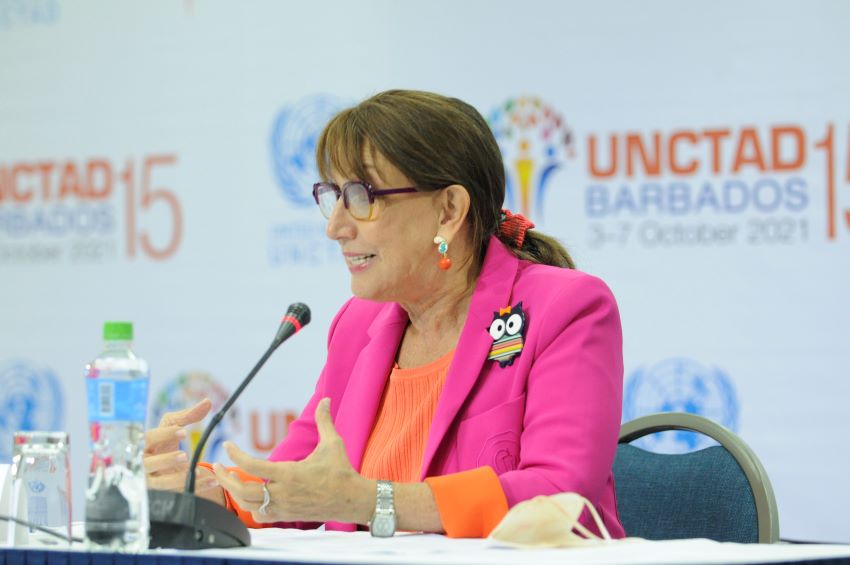
The United Nations Conference on Trade and Development (UNCTAD), has announced that the organisation will be launching a dedicated framework and platform to deliver technical assistance and capacity-building to small island developing states (SIDS) including Barbados.
Speaking in Geneva, on November 20, at the opening of the Trade and Development Board meeting, Secretary General, Rebeca Grynspan, introduced the SIDS framework as “a trailblazer in the way that UNCTAD will interface with its small states members”.
Secretary General Grynspan explained that this was as a result of collaboration between CARICOM member states and SIDS delegations working in conjunction with the UNCTAD Secretariat.
The Framework and the accompanying SIDS Trust Fund are direct outcomes of the UNCTAD 15 Conference hosted by Barbados in 2021; where the outcome document, the Bridgetown Covenant, recognised the need for UNCTAD to ramp up support for small islands.
In response, Barbados’ Ambassador to the United Nations, World Trade Organization and other International Organisations in Geneva, Matthew Wilson, welcomed the initiative.
He underscored that SIDS have been at the frontlines of the poly-crisis and said that “our specific vulnerabilities and needs require a dedicated focus and predictable financial and technical support”.
“We thank UNCTAD for responding to the request of SIDS and to operationalising what was a key outcome of the UNCTAD 15 Conference hosted by Barbados in 2021. We call on funders and partners to support this SIDS platform,” Ambassador Wilson stated.
A number of partners, including funders have expressed interest in supporting the Framework and the Trust Fund which will be hosted by UNCTAD. The Trust Fund will enable predictable, secure and regular financial resources to be made available for the delivery of robust substantive and technical support for SIDS. For example, fostering data-driven and evidence-based trade and development policies to kick-start SIDS specific structural transformation and building institutional and human resources capabilities.
The pillars of the SIDS strategy include: building productive capacities; enhancing connectivity, reducing transport costs, and promoting sustainable and resilient transport; facilitating customs modernisation (ASYCUDA); facilitating digital transformation; and supporting investment, including FDI.
Other pillars are: tapping into the potential of the ocean economy; supporting private sector development; supporting the mobilisation of external financial resources; advancing South-South cooperation to enhance development strategies and economic integration; and implementing trade facilitation reforms, with particular emphasis on productive capacities.
Ambassador Wilson noted that the SIDS Framework, its pillars and the Trust Fund should assist in building resilience to address the systemic vulnerabilities and structural challenges being faced by SIDS.
